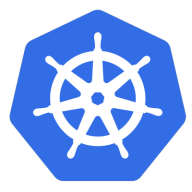

HashiCorp Nomad and Kubernetes are products competing in the orchestration and scheduling space. Kubernetes often leads due to its widespread adoption and extensive ecosystem.
Features: HashiCorp Nomad supports multiple workloads in a single cluster, manages non-containerized applications, and offers a simplistic architecture. Kubernetes provides advanced networking, strong persistent storage, and extensive community support, making it suitable for complex orchestrations.
Ease of Deployment and Customer Service: HashiCorp Nomad features straightforward deployment and integrates flexibly with existing tools, minimizing overhead. Kubernetes, though complex to deploy, is supported by comprehensive documentation and resources, enhancing the deployment process. Its customer support ecosystem is more extensive, offering numerous community-driven solutions.
Pricing and ROI: HashiCorp Nomad generally involves lower initial setup costs due to its simple architecture, offering quicker ROI for small-scale environments. Kubernetes may incur higher setup costs but provides significant ROI for complex and scalable applications, making it suitable for enterprises that need extensive scalability.
| Product | Market Share (%) |
|---|---|
| Kubernetes | 6.9% |
| HashiCorp Nomad | 4.0% |
| Other | 89.1% |

| Company Size | Count |
|---|---|
| Small Business | 26 |
| Midsize Enterprise | 10 |
| Large Enterprise | 47 |
HashiCorp was founded by Mitchell Hashimoto and Armon Dadgar in 2012 with the goal of revolutionizing datacenter management: application development, delivery, and maintenance.
The datacenter of today is very different than the datacenter of yesterday, and we think the datacenter of tomorrow is just around the corner. We're writing software to take you all the way from yesterday to today, and then safely to tomorrow and beyond.
Physical, virtual, containers. Private cloud, public cloud, hybrid cloud. IaaS, PaaS, SaaS. Windows, Linux, Mac. These are just some of the choices faced when architecting a datacenter of today. And the choice is not one or the other; instead, it is often a combination of many of these.
HashiCorp builds tools to ease these decisions by presenting solutions that span the gaps. Our tools manage both physical machines and virtual machines, Windows, and Linux, SaaS and IaaS, etc. And we're committed to supporting next-generation technologies, as well.
HashiCorp was founded and continues to be run by the primary authors of all our core technologies powering thousands of companies worldwide. We speak at conferences and write books related to application and infrastructure management.
All our foundational technologies are open source and developed openly, and have been since 2010.
The Tao of HashiCorp is the foundation that guides our vision, roadmap, and product design. As you evaluate using or contributing to HashiCorp's products, it may be valuable to understand the motivations and intentions for our work.
Kubernetes (K8s) is an open-source system for automating deployment, scaling, and management of containerized applications.
It groups containers that make up an application into logical units for easy management and discovery. Kubernetes builds upon 15 years of experience of running production workloads at Google, combined with best-of-breed ideas and practices from the community.
We monitor all Container Management reviews to prevent fraudulent reviews and keep review quality high. We do not post reviews by company employees or direct competitors. We validate each review for authenticity via cross-reference with LinkedIn, and personal follow-up with the reviewer when necessary.